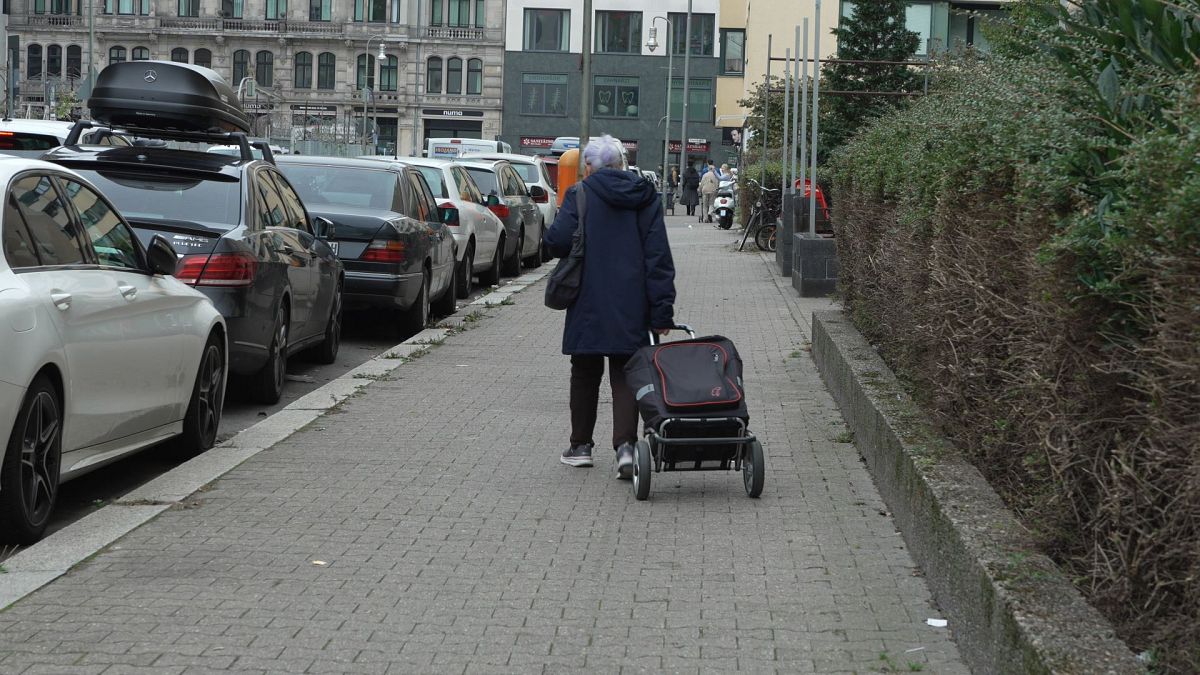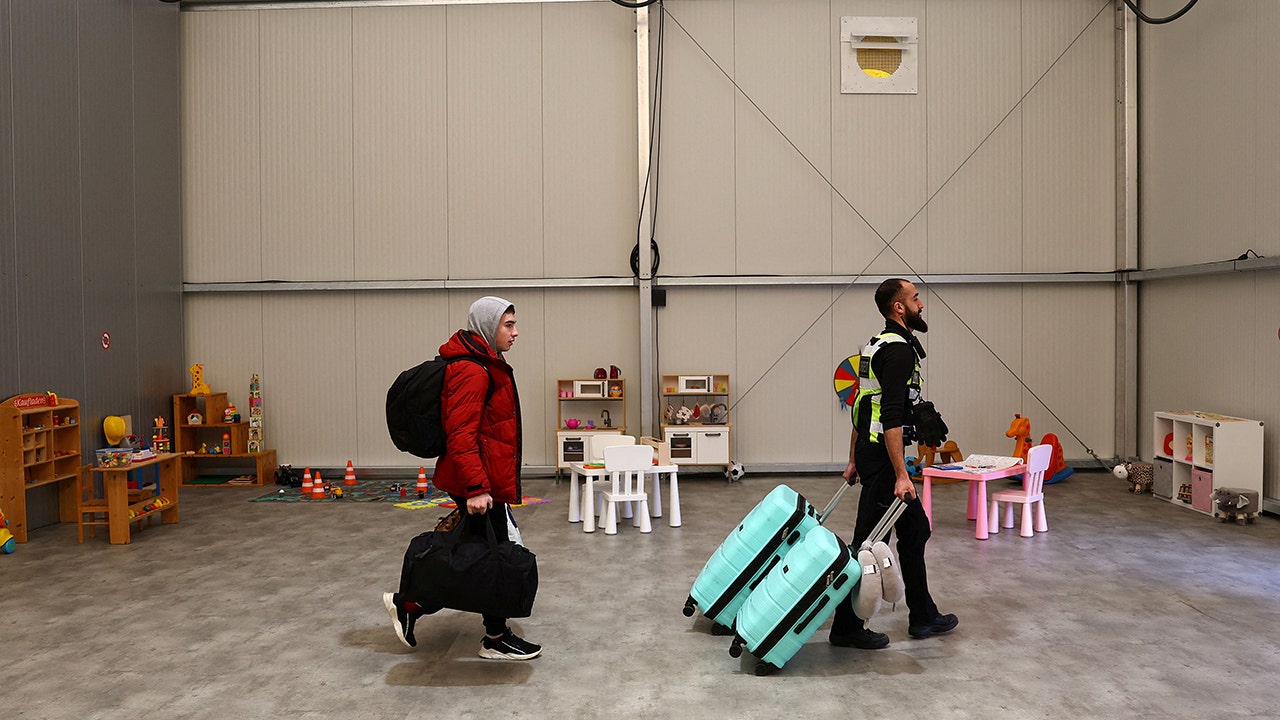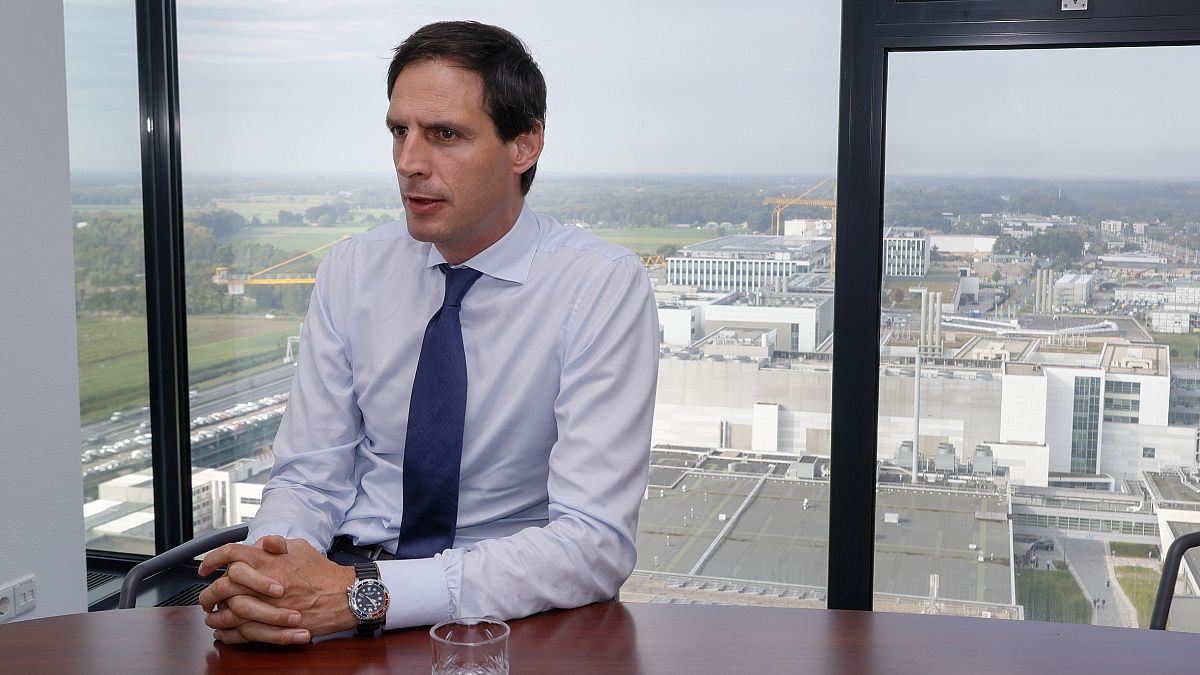With politicians focussing on poverty in old age, many are calling on the German government to reform the pension system. But how serious really is the situation?
As political parties, including Alternative for Germany (AfD) and Sahra Wagenknecht Alliance (BSW), promise more money for pensioners, pensions have become a hot topic in Germany ahead of the federal election next year.
The coalition government has also found itself in political hot water after Finance Minister Christian Lindner announced plans to shake up private pensions earlier in 2024, a few years after significant unrest broke out in France when President Emmanuel Macron introduced legislation to raise the statutory retirement age.
What is the reality for pensioners in Germany today?
Euronews met with 65-year-old Berlin retiree Antje, who worked for 45 years as a senior carer in a care home for older people. She says she receives a state pension of €1,500 per month after deductions for health insurance and tax.
Antje counts herself as lucky as she inherited wealth from her family, but recognises that it’s “tough for people from different backgrounds who may not have the same education or opportunities from their parents. It’s difficult for them to get ahead.”
She said it’s important for people to secure their retirement plan early, “so you don’t have to rely on someone else to look after you or provide opportunities for you,” and has already been advising her son to diversify his assets with investments.
When asked about poverty amongst older people, Anje pointed to her time working in a care home. “I’ve noticed that older people who are placed in homes or are taken care of by their relatives often have very little money. Many of them only have a small amount of disposable income each month and are struggling”.
Antje explains that these people are still cared for but are often forced to rely on what they can get in social security. “Some of them didn’t earn much throughout their lives, or they had a lot of children, worked as housewives, and never worked in paid jobs. They often feel a bit sad or regretful about that,” she says, adding that those people can end up feeling abandoned by the state.
She explains that it wasn’t just the people she cared for at work who struggled; it was her colleagues too, many of whom need to continue working into their retirement because they simply didn’t earn enough.
“Despite their age, they continue working because their pensions aren’t enough. That’s really tough,” she explains.
What does the German pension system offer?
Una Großman is a spokesperson from the German Pension Insurance (DR), the umbrella organisation for German pension funds.
She says around 21 million people are paid a pension. The average gross pension allowance after paying into the system for 35 years is €1,620 per month, subject to tax and health insurance deductions.
Großmann says that amongst the 21 million people receiving pensions, only “a minority still work beyond retirement,” around 1.3-1.4 million people.
She adds that 80% of those employed work a so-called “mini-job,” or part-time employment. Only around 270,000 work in more significant employment.
“The reasons for working in old age vary greatly and are very personal.” Großman explained, citing a study from 2022 analysing older people’s working habits. “The most surprising finding was that the number one reason people continue working in old age was enjoyment of the work”.
“Less than half of the people cited financial reasons as the primary factor,” she concluded.
Could the German pension system be improved?
Großmann highlights that the German statutory pension is pegged to wage inflation. This year, all retirees’ pensions increased by 4.57% across Germany.
“There is also a pension guarantee, meaning pension payments cannot fall below a certain level even in the hypothetical case of negative wage inflation,” she says.
The DR spokesperson warned that the German pension system is in a transitional period and “pensions will be taxed more and more in the future.”
However, she also celebrates the system, contending that it allows older people the opportunity to retire in peace, having worked for several decades. “I also see the increasing longevity as a success … shouldn’t we all be proud that we have created a system where longevity, a long and healthy life, is possible?” she says.
Financial experts have cast doubt about the effectiveness of the pension system in Germany, and young people are concerned about their access to pensions as the retirement age increases across European countries such as France and Germany.
Großmann acknowledges the demographic shift, “not just in Germany but also in other European countries. This has been known for a long time. It’s a challenge for the German pension system, but it’s not as severe today as originally predicted”.
Germany announced that the standard retirement age will rise to 67 years by 2031, gradually rising from the current figure of 64.4 years. Although the DR agrees with this rise, they point out the need to balance it with continued employment opportunities.
“If people are supposed to work longer, there needs to be the appropriate job environment for them to do so.” With AI developments continuing at neck-breaking speed, concern amongst the younger generations continues to rise.
What can individuals do?
Großmann echoes Antje’s advice to her son: don’t put all your eggs in one basket.
Since 2001, Germany has subscribed to what is known as the “three-pillar model” for retirement income. “This means that there’s not only the statutory pension, but many people also have income from other sources. The three pillars are: first, the statutory pension; second, private pension plans; and third, company pension plans,” Großmann explains.
This is often also supplemented by private income from investments in stocks and property. “When you look at retirement income later on, it’s important to consider the household context and not just focus on the statutory pension alone,” Großman explains.
However, as the average age in Germany and across the continent continues to rise and the birth rate decreases, reforms will be necessary, either by raising the retirement age or by spending more of the federal budget on future pensions.
Read the full article here



:focal(1324x560:1326x558)/origin-imgresizer.eurosport.com/2024/10/23/4054500-82227648-2560-1440.jpg)












